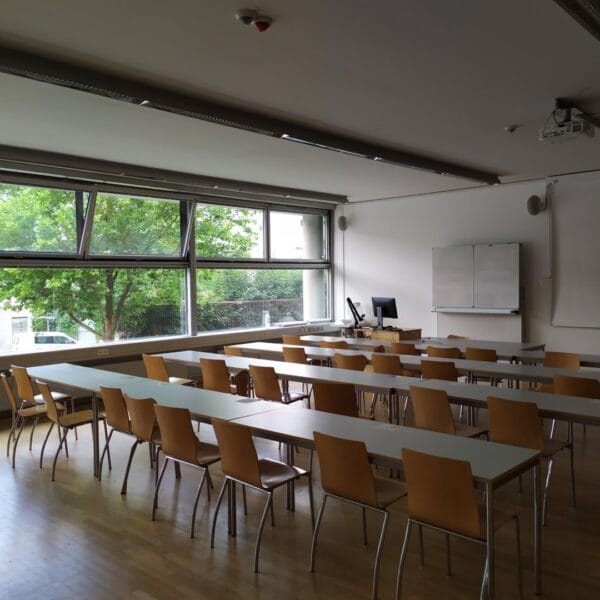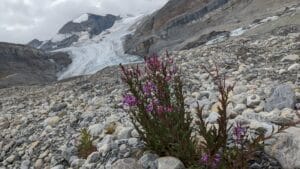ID32: Land tenure and entrepreneurship in mountainous regions
Details
Full Title
Land tenure and entrepreneurship in mountainous regions. Emphasis on youth entrepreneurship, amenity migration and tourism in relation to land tenure patterns.
Scheduled
Convener
Co-Conveners
Dimitris Kaliampakos and Apostolos Arvanitis
Assigned to Synthesis Workshop
–
Keywords
Land tenure, entrepreneurship, amenity migrants, mountains, tourism, youth.
Description
Mountainous regions provide a variety of natural and cultural elements attractive for permanent or seasonal settlement. During the last decades, many people decide to leave urban centers and resettle in mountains. At the same time, new forms of remote working patterns are emerging especially under the current pandemic situation. However, young people living in mountains still migrate in search for job opportunities. In this frame, the session focuses on research related to entrepreneurship patterns, especially in tourism activities, in mountainous areas as a vehicle of encouraging young people to remain in their home-places and newcomers to be attracted in mountains. At the bottom line, land tenure patterns appear to hold an important role in this perspective. Land ownership, legal rights to land, heritable patterns, availability of land and buildings, abandoned buildings, etc., all form several aspects that either encourage or discourage people from relocation and/or initiation of an enterprise. Research in this area can provide useful feedback for future mountainous development.
Registered Abstracts
Abstract ID 760 | Date: 2022-09-12 13:30 – 13:50 | Type: Oral Presentation | Place: SOWI – Seminar room SR1 |
Lombardi, Giampiero; Nota, Ginevra; Pagani, Rebecca; Pittarello, Marco; Ravetto Enri, Simone; Barberis, Davide; Lonati, Michele
University of Torino Dept. Agricultural, Forest and Food Sciences, Italy
Keywords: Agropastoral Farming Systems, Land Management, Land Fragmentation, Land Tenure, Less Favoured Areas
Agriculture and forestry have shaped European landscapes for centuries, transforming native forests into a mixture of woodlands, grasslands and crops with multiple benefits to farmers, environment and society. However, the more marginal areas are now generally abandoned or underexploited, especially in the mountains, because of their low productivity, which results in insufficient profitability for the farmers. Furthermore, the transfer from the productive lowlands to the mountains of unsustainable business models not based on the product quality and disconnected from the territory, as well as inheritance laws promoting agricultural land fragmentation, are relevant causes of this situation occurring almost all over Europe. Fragmentation increases agricultural production costs, generally higher in harsh conditions, and, coupled with the low productivity, further limits the possibility for farmers to have sufficient profits from their activities. In this context, updated strategies of land management have to be urgently adopted to widen managed farmland, make the management easier, promote quality products, improve farmers' profitability, set an environment where young people are encouraged to relocate or start with a new enterprise, and definitely preserve or restore agricultural landscapes. Among the strategies implemented in Europe, land consolidation associations (LCs) were proposed for pastures in France in the 1970s to encourage land parcel aggregation and simplify the management while increasing parcel monetary value. Taking a cue from France, some LCs have started to establish since 2010 also in Piedmont (NW Italy), where the regional government enacted a law to promote them in 2016. LCs are associations of private and public owners of the parcels included in a given area who decide to join together to enhance the value of their parcels, for the general interest of the community, and to contrast abandonment. LCs have to draw up a management plan of pooled parcels and identify an agricultural holding to be entrusted with the application of the good agricultural practises proposed by the plan and the achievement of its goals over a well determined time span. The law states the property rights of all LC members, limits land parcel adverse possession, and sets the rules to include in LC register those parcels whose owners are unknown or untraceable (the so called 'silent land owners'). The beneficial impacts of the law, the opportunities offered by it, and its possible drawbacks after six years from its enactment are discussed in this contribution.
Abstract ID 399 | Date: 2022-09-12 13:50 – 14:10 | Type: Oral Presentation | Place: SOWI – Seminar room SR1 |
Grüner, Bernhard
University of Innsbruck, Austria
Keywords: Lifestyle Mobility, Amenity Migration, Lifestyle Farming, New Entrance, Social Integration, Alpine Space
Even in the 1990s, remote Alpine regions seemed to be at the mercy of demographic, socio-economic and agricultural decline – without any alternative. Although many regions are still facing the out-migration of autochthons and the abandonment of mountain farms, my presentation aims to break these stereotypes dealing with lifestyle mobility. Recent results of two mixed-method studies conducted in peripheral communities of the Eastern Alps highlight the interplay among lifestyle, mobility and entrepreneurship in agriculture and tourism. While especially young people migrate from rural villages to urban centers in the quest of better prospects, others follow opposite paths. Fieldwork identified a rising number of urbanites who are relocating their residence temporarily or permanently to the Austrian and South Tyrolean highlands. Due to this amenity-led type of spatial mobility, newcomers seek an Alpine lifestyle to improve their quality of life. However, they only manage this by integrating themselves into the local community. Therefore, a first step is to overcome hurdles in the tenure of land, caused by a nontransparent real estate market in general or its strict regulations, specifically regarding the acquisition of second homes or the extrafamilial takeover of mountain farms. Secondly, those newcomers, who cannot transfer their work to the new residence via teleworking, have to participate in the regional labor market. Against this background, newcomers show a high degree of self-employment. They either use their previously acquired urban expertise in support of the prevailing economy or to establish individual niches closely related to agritourism, as I will illustrate with interview quotes and footage. Entering agriculture from scratch seems to be a step backwards in newcomers' social mobility, but it opens up a lifestyle far from their preceding occupation in the service or industrial sector. Furthermore, new entrants strive for self-determination and independence from agricultural industry, which rubs off on the local agricultural regime. The presence of newcomers, even outside agriculture, thus sustainably strengthen development in the investigated communities, rather than weakening it. The impacts of these lifestyle mobilities are evident both spatially and socially, ranging from the revitalization of abandoned farm building stock to the introduction of innovative economic strategies, but also including the preservation respective the advancement of traditional knowledge.
Abstract ID 115 | Date: 2022-09-12 14:10 – 14:30 | Type: Oral Presentation | Place: SOWI – Seminar room SR1 |
Dube, Jerit; Nyamukondiwa, Pertina; Magaiza, Grey
University of Free State, South Africa
Keywords: Capability, Resource Mobilization, Vulnerability And Women Entrepreneurship Resilience.
The high failure rate of women-led emerging enterprises in the Southern African mountain regions is an evident reflection of the various adversities and vulnerabilities that exist. Although this is the case, there is a limited understanding of these adversities and vulnerabilities that dispose them to failure. This situation is worsened by poverty, high unemployment and unstable economy in the Afromontane region. Emerging female entrepreneurs in this region often operate in uncertain situations, hence they require resilience in order to succeed. Although previous researchers have made a significant contribution towards understating of women entrepreneurship resilience, there is still a gap in existing literature on the nexus between entrepreneurship resilience, capability, vulnerability reduction and resource mobilization in the Southern African mountain regions. However, these scholars acknowledge that there is a relationship between entrepreneurship resilience, capability, vulnerability reduction and resource mobilization. This study attempts to fill this gap by exploring the nexus between entrepreneurship resilience, capability, vulnerability reduction and resource mobilization among emerging female entrepreneurs in QwaQwa. As research on this phenomenon is still new, the findings of this study will contribute to the body of literature and provide recommendations for future research. Qualitatively, a phenomenological approach will be employed to gather information from emerging female entrepreneurs on how vulnerabilities make it difficult for them to build stronger entrepreneurship resilience to adversities. Through snowball sampling, 10 participants, who have been into entrepreneurship from 0-5 years will be invited to participate in this study. Data will be collected through in-depth interviews, focus group discussions and observations. Atlas.ti-based thematic content analysis will be used analyse data. The results of this study will assist policy makers in developing policies for reducing vulnerability and strengthening women entrepreneurship resilience in rural mountain regions. Results from this study will also provide insights for development practitioners and researchers on developing programmes that improve capability and resource mobilisation strategies when attempting to reduce vulnerability and build entrepreneurship resilience of female entrepreneurs. A paper discussing the results of this study will be published as a journal article. As a result, emerging female entrepreneurs from the Southern African mountain regions will gain understanding of the various strategies which they can use to build resilience to adversities.
Acknowledgements
This work is based on UFS-QQ Risk & Vulnerability Science Centre (RVSC) research supported wholly / in part by the National Research Foundation of South Africa (Grant Numbers: 118601), as part of the Afromontane Research Unit.



